John Janaro's Blog, page 253
June 30, 2015
The Invasion of the Blue Jays
I think people are probably in the mood for some bird-watching. We were practically invaded by blue jays in the past few days. It was a bit noisy but I got some awesome pictures.
 Like this!
Like this!
 ...and this!
...and this!
 And this!
And this!
 And this!
And this!
---------------------------------------------------------------------------
And don't think that these big blue jays were just hanging around posing for pictures. They were aggressive. It was soon clear that their behavior had a distinctive purpose.
They were keenly aware of the presence of a predator. And they exemplified the old saying that "the best defense is a good offense." They took turns chasing, squawking, and standing guard.
But what "predator" could they possibly fear outside the front of our house?
 Actually, this one... poor, lazy old Reep!---------------------------------------------------------------------------
Actually, this one... poor, lazy old Reep!---------------------------------------------------------------------------
The next morning it became clear why these birds were determined to turn Reepicheep into a nervous wreck. We found a couple of little jays flitting about and scuttling along the fence, stretching their growing feathers.

The strategy worked, as this picture of a terrified Reepy makes clear. She just wanted to be left alone, poor cat.

 Like this!
Like this! ...and this!
...and this! And this!
And this! And this!
And this!---------------------------------------------------------------------------
And don't think that these big blue jays were just hanging around posing for pictures. They were aggressive. It was soon clear that their behavior had a distinctive purpose.
They were keenly aware of the presence of a predator. And they exemplified the old saying that "the best defense is a good offense." They took turns chasing, squawking, and standing guard.
But what "predator" could they possibly fear outside the front of our house?
 Actually, this one... poor, lazy old Reep!---------------------------------------------------------------------------
Actually, this one... poor, lazy old Reep!---------------------------------------------------------------------------The next morning it became clear why these birds were determined to turn Reepicheep into a nervous wreck. We found a couple of little jays flitting about and scuttling along the fence, stretching their growing feathers.

The strategy worked, as this picture of a terrified Reepy makes clear. She just wanted to be left alone, poor cat.

Published on June 30, 2015 20:13
June 29, 2015
"Love," "Freedom," "Dignity": What Do They Mean?
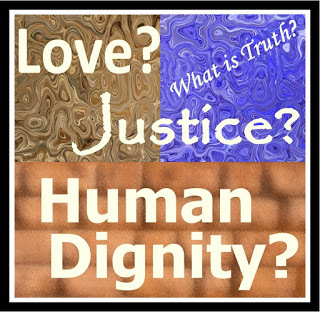 As June draws to a close, I am drawn to reflect upon the profound and crucially important continuity between the teaching of Pope Francis in his encyclical Laudato Si' and that of his recent predecessors in the Petrine ministry.
As June draws to a close, I am drawn to reflect upon the profound and crucially important continuity between the teaching of Pope Francis in his encyclical Laudato Si' and that of his recent predecessors in the Petrine ministry.It is striking to reflect upon the prophetic witness of the successors of Saint Peter to an authentic view of the human person, a view that is so important for shedding light on many problems of our time. This testimony by the popes and the bishops of the world in union with them, drawn from the providential insights of the Second Vatican Council, continues to be a beacon of light for those who are searching for what it means to be a human being in the midst of the expansion and development, the wild upheaval, the chaotic shifting and tumult of this period in human history.
So often we articulate deeply diverse proposals for human life in this world using the same words, such as "dignity" and "freedom" and "love," or "growth," "progress," "community," "relationship," "maturity."
How is it that we use the same words to express radically different approaches to human life and human activity? Perhaps we use the same words with different meanings. Or maybe sometimes we use the words, but without their necessary context, which results in their losing coherence and even being manipulated.
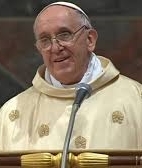
How do we know the meaning of these words that we use to speak about the human person? This question points out the great significance of the prophetic witness of the popes and the Church in our time.
The popes who have shepherded the Church during the gradual emergence of the post-modern world -- this yet-unknown New Epoch of global interdependence, unprecedented human power, and the need for a new and deeper responsibility -- have stressed the same crucial points about the dignity of human persons, their dependence upon God, and their place in the world created by God.
At the end of this post are some passages taken from a homily of Pope Saint John Paul II over a quarter of a century ago (1989). John Paul has the same concerns as Francis, as these and many other passages from his teaching make clear.
In particular he points to a foundational and defining issue that Francis also identifies, and that I wish to unfold briefly here in this post. It is the attempt to articulate human freedom and responsibility without reference to the deepest truth about the human being, namely that the human person is radically given to his or herself. The human person is created by God.
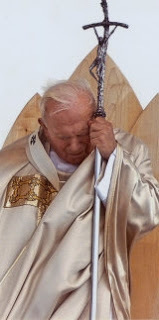 If we forget God, if we live as if God did not exist, we let go of the fundamental basis for everything we say about ourselves. We may use the same terms -- human dignity, the human person, freedom, relationship, love, happiness -- but these words only have meaning in the context of an understanding that we are created persons.
If we forget God, if we live as if God did not exist, we let go of the fundamental basis for everything we say about ourselves. We may use the same terms -- human dignity, the human person, freedom, relationship, love, happiness -- but these words only have meaning in the context of an understanding that we are created persons.Remembering that we are created persons means affirming the radical relationship with God that originates and sustains the gift of existence that expresses God's love for each of us, the love that gives me to myself.
And it affirms the call from God, the human vocation that leads us to the fullness of our true identity as unique human persons by bringing us to the fulfillment of love and freedom with Him.
Insofar as we forget that we are created persons and "live as if God did not exist," however, our words about ourselves drift away from their genuine significance. The same vocabulary -- human dignity, the human person, freedom, relationship, love, happiness -- becomes unmoored from basic human experience, and the true elements of our perception of reality begin to fragment.
When we forget that we are created persons, we shake the foundation of our being. We attempt to withdraw ourselves from the central relationship that defines us. Thus, a variety of confused perceptions, prejudices, emotional reactions and fears can easily become mixed into our understanding of ourselves and therefore into what we mean by the words that refer to the human person and core human values.
The same words can thereby take on different meanings. They can become pretexts for desperate efforts of self-affirmation, or defensive words that we use to protect our ever-widening isolation from others whom we mistrust, or whom we wish to avoid because of divisions, resentment, emotional pain, or just ordinary selfishness.
It is not difficult to find ourselves in solitude and plunged into an incomprehensible and radically unstable experience of life.
We may endure this agonizing loneliness and confusion for a time. Usually, however, we seek out or stumble upon others who we think can support us in defining our identity. But we cannot understand ourselves if we seal off our own existence from the absolute, secure Source that establishes and sustains us.
Too often we have forgotten that Source, or pushed Him to the margins of our awareness. We have reduced Him to an abstraction or perhaps domesticated Him into a background figure who provides comfort, whose agency is limited and defined by our own measure. Or, we have never known anything about Him, and have never responded to the provocations in life that could have awakened our interest in seeking Him. We can thus become closed off, confused, anesthetized, or asleep in front of reality.
Insofar as we fail to live some kind of vital openness to this all-good, loving, creative, radically affirming Source of our human dignity -- the Source of the real identity and preciousness of each one of us -- we live without roots. We become disconnected from the original dynamic impetus that constitutes our freedom and makes our lives human: the search and the desire for the Mystery that sustains everything.
When peoples and cultures cut themselves off from this search, they lose the sense of who they are. They attempt to "search for their own selves" but they don't know where to look, and they often conclude that their only hope is to create their own "value," using various inadequate or even arbitrary criteria.
How often we live this way today, trying to invent ourselves and invest ourselves with value. But this is an anxious, distressing, and ultimately futile project. Life "works" only to the extent that we recognize and live with a vital awareness of the gift that originates and sustains reality and ourselves -- the gift that bestows meaning, and that awakens and draws forth our fascination with everything, our wonder at the beauty of things, the universe, and our own tremendous being as created persons.
Nevertheless, we forget, and we are tempted to try to manipulate the world and ourselves. We try to create the meaning and purpose of our lives -- our identity -- relying solely on our own ingenuity, impulses, and whims. We may succeed in putting on a spectacle, but we cannot generate satisfaction or any enduring confidence with these self-definitions. We will always be haunted by the anxious sense of precariousness, fragility, and ultimately the failure of our inadequate projections. We may be able to suppress this from our consciousness and skim through our days on the surface of shallow satisfactions, but it always remains beneath our awareness like an awful, gaping hole: "This is not real. This is not who I am. This is not... enough!"
Thus, when we live the project of self-invention and self-validation, we also live (paradoxically) with a desperate hunger for affirmation from others. Seldom do we try to stand alone in the madness of an openly anarchic affirmation of ourselves by ourselves. We feel the need for affirmation from others. We want to hear that we are good, that we have value, that we deserve to be loved. This need for affirmation is profoundly human, but it becomes distorted when we subject it to our project. We start to measure the authenticity of affirmation from others -- the genuineness of the love others offer to us -- by whether or not it endorses the artifice of our limited, self-conceived identity and the ideas implicated by it.
This distortion of the need for affirmation leads us to search for places and groups outside ourselves that correspond to and support our ideas. Or, in times of confusion, we look for places where the affirmation of others resonates with our fractured self-image, but also seems to restore roots to our existence. Eventually we are willing to allow the affirming group to impose its own definition on us. We come to depend on this group-identity for a sense of coherence in life and for our understanding of the meaning of being human.
There are no lack of places, groups, and human social constructions that we can adhere to in this dysfunctional way: political structures, ideologies, nations, tribes, cults, corporations, social status, wealth, entitlement, resentment, and lifestyles that appear to satisfy but in reality thwart the actual humanity that has been given to us. We take up whatever seems to feed this need for affirmation, and we set ourselves against anything or anyone that appears to threaten it.
When this happens, there is no more room for discussion of what our words about "human person" and "dignity" and "love" actually mean. Instead we form into factions, seek security in our power, and inevitably make war against our rivals. Even the beautiful word "peace" becomes a mask for violence when we try to live as if God did not exist.
 It is entirely different if we remember God, the Living God who creates us, holds us, loves us with an unshakable firmness, crafts each one of us down to the depths of our own freedom.
It is entirely different if we remember God, the Living God who creates us, holds us, loves us with an unshakable firmness, crafts each one of us down to the depths of our own freedom.When we remember that the Good God is the Source of who we are, then we turn to Him, we seek Him, we open up to the mystery of our own destiny, we beg Him to show us His face, and we trust in Him.
Then we begin to discover the reality of our own identity, our dignity, and our greatness. We begin to become truly free.
Here are selections of the homily of Saint John Paul II given on June 4, 1989:
God is all-holy, he is the Creator who gives us life and who makes all that exists in the universe. We are creatures and his children, in need of healing because of our sins.
[Yet] it is easy to lose sight of the Creator, from whose loving hands all things come. It is easy to live as if God did not exist. Indeed, there is a powerful attraction to such an attitude, for it might seem that acknowledging God as the origin and end of all things lessens human independence and places unacceptable limits on human action. But when we forget God we soon lose sight of the deeper meaning of our existence, we no longer know who we are.
Is it not fundamental for our psychological and social well-being to hear God’s voice in the wonderful harmony of the universe? Is it not in fact liberating to recognize that the stability, truth, goodness and order which the human mind increasingly discovers in the cosmos are a reflection of the unity, truth, goodness and beauty of the Creator himself?
A radical challenge facing the human family ... [today] is to use the earth’s resources wisely and responsibly, which means with respect for the limits to which these resources are necessarily subject. To do this is to respect the will of the Creator.
And in human affairs the challenge is to build a world of justice, peace and love, where the life and equal dignity of every human being, without discrimination, is defended and sustained. To do this is to recognize the face of God in every human face, and especially in the tears and sufferings of those who long to be loved or justly treated.
Every act of goodness is an important contribution to the changes we all wish to see.... All our good actions constitute a victory for justice, peace and human dignity. But our selfishness and lack of moral courage lead to the persistence and even strengthening of injustice in the world.
The entire Good News of our salvation [is a] witness to the wonderful Gift of God himself, expressed in the Word of life. God bestows on humanity an absolutely free gift – a share in his own divine nature. He endows his creatures with eternal life in Christ.
Man is graced by God... far beyond anything that [we by ourselves] could humanly achieve or even desire, for the gift is truly supernatural. The wonder of this gift is that it makes it possible for us to achieve the object of our deepest longings: to live forever in intimate union with God who is the source of all good.
Published on June 29, 2015 13:16
June 28, 2015
Open My Heart
Published on June 28, 2015 19:05
June 27, 2015
The Human Person: What a Mess!
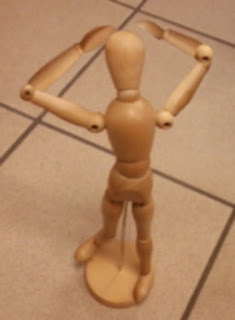 The human person. Image of God.
The human person. Image of God.Made from dust. Destined to return to dust.
Redeemed by the grace of the God who took the dust and made it His dust, raising it up to eternal life.
This is the truth. I believe it. I believe -- which is to say I know with certainty -- that this is the truth.
This certainty is a gift from God.
It is not up to me or anyone else to change the truth that He has given to the world. Nor would I want to change a single iota of the truth, because it is here that I find the mercy and the love that I need.
The human person. What a mess!
Who can understand the heart of a human person? I know, from my own experience -- from my own suffering and from the suffering of those I love -- something of the hindrances, the obstacles, the feebleness of enfleshed human intelligence and human freedom.
The opaque afflictions of the bodily person lead to the confusion and the interior realm of misperception that limit us and so often hinder our judgment. Due to various disorders we've only begun to understand, we are born with brains and nervous systems and endocrine systems and other systems that are off balance, "tilted," more or less dysfunctional in a myriad of ways.
We all enter into a world of relationships with other people who have more or less the same dysfunctions, people who also have a history of living with their problems and dealing with the struggle of trying to be together in the world. They make judgments and act freely, thereby a growing a little in love or becoming more selfish and destructive (or moving back and forth between the two). But real people think and choose inside a thick fog while carrying a lot of weight.
Intelligence and freedom are not lost, but they are often obscured (to a significant extent) because they are incarnate in a broken human frame and pass through all the afflictions of a distorted human life.
We think and act, indeed. But it is difficult.
We Catholic Christians know that at the root of this dysfunction is original sin. Jesus died to free us from the sin of Adam, and baptism frees us from original sin and all other sins. Still, the "effects" of original sin remain in us at various levels of our humanity.
We Christians engage in the struggle and the journey of life along with our non-Christian brothers and sisters, who do not yet know that they too have been redeemed by Jesus and are living within the context of the profuse, mysterious action of His grace.
If we have truly encountered Jesus, then we long for them also to see His beautiful face. With all our faults and weakness, we aspire to live in such a way that His glory shines through us. But the "results" of our witness are in His hands, and we must trust in Him because He holds the destiny of us all, of each and every human person with immeasurable and ineffable love.
Meanwhile, we all journey together in this life, and we are all broken.
Original sin darkens the intellect and weakens the will, certainly. But it also makes us sick. Physically sick. Disoriented. "Off-balance." Afflicted. Passing from generation to generation in pain. Sweating to bring forth thistles and thorns from the earth.
We all suffer from a terminal illness. We are all dying.
And we are all stunted as human beings by a subtle and diffuse distortion of perception and emotion. Most of us struggle to overcome this condition. A few stand out in extraordinary ways, as "saints" or heroes. Others live flawed but beautiful and admirable lives. A great number of us (I hope) just keep working at it, trying move forward. We make the best choices we can. We fail, we make mistakes, we acknowledge them, we take advice from others, we keep trying, we build up the good in ourselves and others.
Sometimes others can see that we've made some progress.
Sometimes, however, this stunted, "chronic and terminally ill" human condition can overcome a person even in spite of their best efforts; it can be as powerful as the acute disorientation that we recognize when a person has a great fever or a massive brain seizure. This sickness, in reality, is a kind of "brain damage" that we don't yet fully understand.
It is the crisis brought on by those diseases that we classify as "mental illness."
But often our poor feeble human frame undergoes more subtle convulsions that we don't perceive on the surface of our lives. The pain is deep down in the layers of memory, wound up with hormones and the whole emotional structure, with the nervous system and the brain and its tangled neurological arrangements, or with other more obscure aspects of our humanity that we have not discovered or about which we can only guess.
Humans get sick, grow old, and weaken. We experience this in various ways at various times in ourselves and/or in those we love. We all carry great burdens.
We are all suffering.
The road is difficult. Human freedom, nevertheless, is real. It is woven into all of this mess. The love of Jesus is also real, and it is offered to us within all of this mess.
Our lives therefore, are inescapably dramatic. Love is always possible in this life. So too is sin. We know this if we are honest with ourselves. We know when we have freely chosen to do something that is evil. The weight of our human condition may diminish the blame we deserve, but we still know that we must take responsibility for the things we do wrong.
We must examine ourselves honestly, and repent of our sins.
It is true that our myriad human afflictions can reduce (in various ways) our measure of responsibility for the evil that we do.
But nothing in our particular human condition can turn evil into good. If something is morally destructive in itself, there are many aspects of our burdened humanity that can make it less destructive for us. But there is nothing that can make it good for us.
If our misery drives us to plunge deeper into more kinds of misery, this is a sorrowful event that should evoke compassion, solidarity, and the effort to help. We deserve this solidarity, each one of us, because we are human beings!
But we cannot use our misery to justify ourselves. It doesn't work. We remain miserable. Even if the whole world told us we were happy, would it make any difference, really?
Self-justification is a project that ends in despair.
It doesn't help, however, simply to point this out. Because we all remain broken and in need of healing. We need healing.
Jesus is the gift that brings healing and hope.
Jesus heals us from our sins and begins to heal the brokenness all the way through us, to lift up our humanity, to empower our freedom, and to enable us to embrace the mysterious path of suffering for ourselves and others.
Our destiny is the glory of God, and His glory is a healed and transformed humanity in which we are brothers and sisters of Jesus forever right down to our bones and nerves and tissues, right down to the delicate and exquisite balance of all our parts, to the depths of spirit and mind and heart and flesh and blood.
The human person: alive and whole forever. Filled up and flowing out with joy.
The hope for every human person is Him. God wants each and every human person to be beautiful and whole forever, and He has promised to bring us to this integral fulfillment when we trust in His Son Jesus.
This is the hope that enables us to taste even now the promise of fulfillment. This is the hope that generates the compassion which we are called to have for one another, the interest in life, the building up of the good in this world, the struggle to move forward without being crushed by our own burdens.
In all things, this is our hope.
Published on June 27, 2015 14:40
June 26, 2015
Without Him, We Labor in Vain

"Unless the Lord builds the house,
those who build it labor in vain.
Unless the Lord guards the city,
the guard keeps watch in vain.
It is in vain that you rise up early
and go late to rest,
eating the bread of anxious toil;
when He pours gifts on His beloved while they slumber."
~Psalm 127:1-2
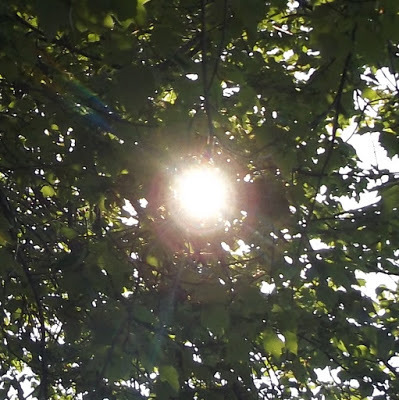
Published on June 26, 2015 20:32
June 23, 2015
Just an "Ordinary" Anniversary?
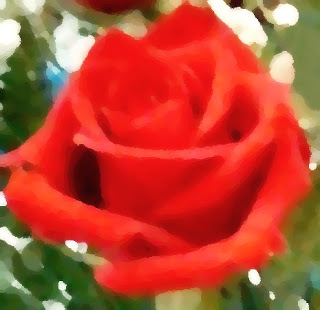 On our nineteenth wedding anniversary, we went out for an early dinner, had good food and some laughs, and then returned home to watch Team USA's women's world cup match. Last year, the men's team lost a thriller on our anniversary, but our ladies came through with a win yesterday.
On our nineteenth wedding anniversary, we went out for an early dinner, had good food and some laughs, and then returned home to watch Team USA's women's world cup match. Last year, the men's team lost a thriller on our anniversary, but our ladies came through with a win yesterday.And I said to Eileen, "I had such a lovely time with you today." Sometimes the days are so busy, exhausting, frustrating, or self-absorbed that we can forget what a wonder it is that we are together.
Marriage is a vocation. That means that it is difficult but good, and that it always raises new challenges. It also means that there is grace! It's not "cheap grace"--we have to ask for it and ask for it, again and again, day after day. Not because God is stingy, but because we have to keep making room to receive His gift.
The gift of grace is abundant. Grace is at the center of marriage. It's not "magic"--it doesn't "fix" the other person or the circumstances in such a way that everything becomes easy. It generates the possibility of love, even in the most difficult circumstances, and it builds new ways of looking at everything: the trials and also the joys, the past, the present, and the future.
It builds slowly, day by day. Week by week. Month by month. Year by year.
All this history together that began as friendship, grew into a singular intense affection, then a commitment for life, and then... life, with its shared experience and shared transformation when, by the touch of God, new faces looked at us and we grew together as parents of children who are each unique in themselves.
The children grow, their needs change, and then we have that renewed wonder of watching them take their own places in the world even as they carry our hearts with them.
All of this slow building is the working out of a beautiful and mysterious life that means more than we understand. We are granted glimpses of it, enough to keep us going, to sustain in us the sense that all the ordinary moments have meaning.
This vocation, this relationship of marriage, is so mysterious and so real.
It is an education into the fact that reality itself is mysterious, arduous, sometimes overwhelming but also good, wise, and worthy of trust. I would have to lose my reason and become delusional in order to deny that Eileen and I belong together and are called to walk the road together all the way to the end.
We live in delusional times, however, which is all the more reason we are grateful for the sacrament of marriage with all the grace that transfigures the mystery of daily life. The grace of the sacrament enables us to remember that reality is full of a promise that has already begun to be fulfilled. In the taste of that fulfillment we find the strength to work together, to forgive each other, to remember who we are, to get up when we fall and keep going forward with hope.
Of course, we forget about grace in the flow of the day. Grace is at work nevertheless. Let us thank God for the moments that we remember, and ask that those moments might increase. In spite of how it may seem at the beginning, the grace that builds up married life is not a great wind or a roaring fire. It is the sound of the breeze, and the still, small voice.
Marriage is a sacrament, and through it the Crucified and Risen Jesus draws us into His love, and calls us with His voice, saying, "Do not be afraid."
Published on June 23, 2015 20:54
June 21, 2015
Laudato Si' ... What it Means For You and Me
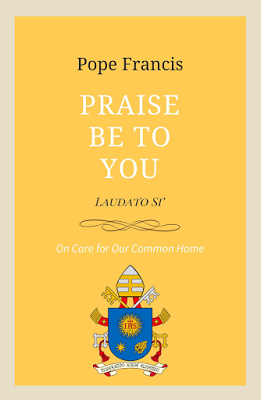 I finished reading the entire text of Pope Francis's majestic encyclical letter Laudato Si', which -- I would say -- is about the place of the human person, human cultures, and the human race in the whole of the created universe.
I finished reading the entire text of Pope Francis's majestic encyclical letter Laudato Si', which -- I would say -- is about the place of the human person, human cultures, and the human race in the whole of the created universe.That is the most concise way that I can express the scope of the document and its pervasive wisdom.
All I have for now are some preliminary reflections, along with the observation that the encyclical deserves many more hours of study and prayerful reflection. It also demands a conversation with my brothers and sisters in which we all aspire to grow in our way of perceiving reality.
The basic challenge of this teaching is to convert our minds and hearts so that we might see things (more and more) as they really are.
Like Benedict XVI, John Paul II, and Paul VI before him, Francis focuses on a conception of the human person that prevails in our time. It is the fruit of a pervasive mentality that renders profoundly ambivalent certain aspects of the amazing and often genuinely useful structures that human ingenuity has brought forth from the physical world.
The problem is not that we use our reason to understand the created world around us and to develop its potentialities in such a way that the world becomes a more human place. Francis, like his predecessors, recognizes and appreciates all the genuine achievements of technological progress.
The problem is that we do not always shape the capacities of the material world wisely. Indeed, how can we deny that human reason has too often gone awry in its conception of the human person and in its engagement with the world?
We have allowed the infinite desire of our hearts to be turned away from the reality of God and have sought to satisfy it by the acquisition of material goods and the exercise of power over one another and the created world. This fact leads Pope Francis to indicate a dimension of what Benedict XVI called "the dictatorship of relativism," namely practical relativism -- the ideology that dominates and justifies our technological interventions in the physical world, including our own bodily persons (see Laudato Si' 122).
Practical relativism approaches reality and seeks to manipulate it in order to bring about immediate, tangible satisfactions, without regard to the larger common good of human persons present and future living in a world created by God for His glory. We use reality in the attempt to "feed" the human heart, instead of engaging reality in a way that draws our hearts out beyond their immediate space and toward our destiny in communion with one another and the world.
Wonder is thus replaced by the obsession with consumption, and the vocation of the person to love is buried by the artificial deflection of the heart toward the excessive and distorted acquisition of possessions. Not surprisingly, humans are not satisfied by these possessions. They constantly seek more, and are always ready to replace old (and now boring) artifices with newer ones.
This is at the heart of the throwaway culture that Francis always speaks about.
The corollary to the "consumer-person" is the exaltation of the value of the "producer-person." People are valued in terms of their talent for manipulating reality and marketing it to disordered human appetites. Especially powerful are those who can promise quick and easy satisfactions by manipulating the reality of the human body itself, particularly in those bodily aspects that are distinctively expressive of the person.
Our culture today embraces relativism, but insists that its ethic is not a total relativism. Rather, it is said, any kind of human action is permitted as long as it does no harm to other humans. The Church has always insisted that acting contrary to creative wisdom of God inherent in reality (a.k.a. the "law of God") always does harm to human persons.
Too often, however, the devastating harm is not immediately perceived. The lure of partial and reductive gratifications of disordered desires often blinds us to the catastrophe of losing our connection with God and our perspective on reality. Thus we do not perceive the corresponding, inevitably unfolding process that leads to the disintegration of ourselves, the affliction of suffering on others, and the destruction of the created world.
Today, the created world is showing signs of the destructive behavior of human beings, signs that are difficult to ignore. Pope Francis has thus written an encyclical about ecology. There is much to say about the profound theological significance as well the widely perceived need for this approach. One thing that should be noted is that Francis, like Benedict before him, wants to direct and give adequate context to the ecological awareness that is emerging in the "post-modern" world.
The Pope appeals to certain prominent and deeply disturbing scientific studies of the environment, not to support some secular political agenda, but to exemplify a basic problem as it is widely perceived. Things are happening in the natural world that require our attention and concern.
It's possible that the particular details, projections, and modes of investigation of the present scientific consensus may change, but what is more crucial is the fact that the secular culture (however confusedly) is beginning to realize that human power does not have decisive control over the world. This means that empirical science and technology cannot solve every problem. They cannot excuse us from the task of making judgments of what is true and good.
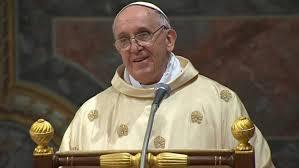 There is, in fact, a reality in front of the human person. The human person is not the demiurge who constructs the universe out of otherwise meaningless cosmic stuff. The human person is not the ultimate authority over reality. We must attend to reality and act according to what we judge to be the genuine good, even if it is not easy, even if it goes against the grain of our immediate desires or our grand schemes.
There is, in fact, a reality in front of the human person. The human person is not the demiurge who constructs the universe out of otherwise meaningless cosmic stuff. The human person is not the ultimate authority over reality. We must attend to reality and act according to what we judge to be the genuine good, even if it is not easy, even if it goes against the grain of our immediate desires or our grand schemes.In fact, reality is suffused with a beauty and a "wisdom" of its own. It is a gift to the human person, who can recognize this wisdom, wonder at its beauty, and work with its potentialities to foster an environment that points more profoundly to truth, goodness, beauty, justice, love, and freedom.
The dominant secular culture finds itself confronted with the experience of objective responsibility. There is an awakening, here, to the objective foundation of the fundamental human impetus to do good and avoid evil. "Do good" apparently cannot be reduced to "Do whatever I want as long as it doesn't seem to hurt anybody else." It cannot be reduced to "Do whatever we have the power to do, as long as people have an appetite for what we produce."
"Do good"... is a moment of openness to the Mystery that human beings do not determine, the Mystery that we seek. It is a moment of grace. As Pope Francis states:
"We are able to take an honest look at ourselves, to acknowledge our deep dissatisfaction, and to embark on new paths to authentic freedom. No system can completely suppress our openness to what is good, true and beautiful, or our God-given ability to respond to his grace at work deep in our hearts" (Pope Francis, Laudato Si' 205).Of course, the history of "grace at work deep in our hearts" is often a bumpy path full of obstacles and dead ends. God is patient. Not surprisingly, the secular culture -- struck by the mystery and the urgency of goodness -- often draws wildly wrong conclusions from this recognition, and then busily constructs utopian or reactive ecological ideologies. Pope Francis is entirely aware of this problem and its destructive potential, and he points it out many times in the encyclical. For example:
"Our relationship with the environment can never be isolated from our relationship with others and with God. Otherwise, it would be nothing more than romantic individualism dressed up in ecological garb, locking us into a stifling immanence" (Pope Francis, Laudato Si' 119).Francis speaks instead (and often) of the interrelationship of everything, founded upon the fact that everything is created, everything receives its being through a transcendent loving tenderness, everything is a gift.
Within the wisdom of the gift, human creativity and technological power can do great things to develop the world. But these latter things must be subordinated to this wisdom that comes from Another. In the cosmos and in his or her vocation of stewardship, the human person discovers the Other, the "Creator," the original Giver. In creation, the Giver begins to unfold the mysterious wisdom that is ultimately fulfilled in His giving of Himself.
So the creativity and freedom of the person are not subjected to "someone else's manipulative power," as though there were some alien force suppressing the person by violence. We are not called to be slaves of some other power in the universe that is simply greater than our power.
Rather the One who gives creation, and who gives us to ourselves, is Himself the Gift. He becomes Gift to us, because He is, in Himself, Infinite Gift. He is the radical opposite of selfishness. He is Love. We are called to adhere to Him in love. In this way, our freedom finds its fulfillment.
The freedom of love: this is what the whole creation awaits, groaning in travail, with such eager longing (see Romans 8:22).
Published on June 21, 2015 18:20
June 18, 2015
Out From the Abyss of Misery
God searches deep into the heart of every human person, of every one of us, because He wants to find us and to save us.
At this very moment He is already with us in our wretchedness. He is already mysteriously at work.
Cry out to Him! Never give up!
___________________________________________
Prayer of Saint Faustina
O greatly Merciful God, Infinite Goodness,
today all humankind calls out from the abyss
of its misery to Your mercy,
to Your compassion, O God;and it is with its mighty voice of misery that it cries out.
Gracious God do not reject the prayer of this earth's exiles!
O Lord, Goodness beyond our understanding,
Who are acquainted with our misery through and through,
and know that by our own power
we cannot ascend to You,
we implore You: anticipate us with Your Grace
and keep on increasing Your mercy in us,
that we may faithfully do Your holy will
all through our life and at death's hour.
Let the omnipotence of Your mercy
shield us from the darts of our salvation's enemies,
that we may with confidence,
as Your children await Your final coming--
that day known to You alone.
And we expect to obtain everything promised us by Jesus
in spite of all our wretchedness.
For Jesus is our Hope:
Through His merciful Heart
as through an open gate we pass through to heaven.
(Diary of Saint Faustina, #1570. Source: Catholic News Agency)
At this very moment He is already with us in our wretchedness. He is already mysteriously at work.
Cry out to Him! Never give up!
___________________________________________
Prayer of Saint Faustina
O greatly Merciful God, Infinite Goodness,
today all humankind calls out from the abyss
of its misery to Your mercy,
to Your compassion, O God;and it is with its mighty voice of misery that it cries out.
Gracious God do not reject the prayer of this earth's exiles!
O Lord, Goodness beyond our understanding,
Who are acquainted with our misery through and through,
and know that by our own power
we cannot ascend to You,
we implore You: anticipate us with Your Grace
and keep on increasing Your mercy in us,
that we may faithfully do Your holy will
all through our life and at death's hour.
Let the omnipotence of Your mercy
shield us from the darts of our salvation's enemies,
that we may with confidence,
as Your children await Your final coming--
that day known to You alone.
And we expect to obtain everything promised us by Jesus
in spite of all our wretchedness.
For Jesus is our Hope:
Through His merciful Heart
as through an open gate we pass through to heaven.
(Diary of Saint Faustina, #1570. Source: Catholic News Agency)
Published on June 18, 2015 20:34
June 17, 2015
Love All the Way
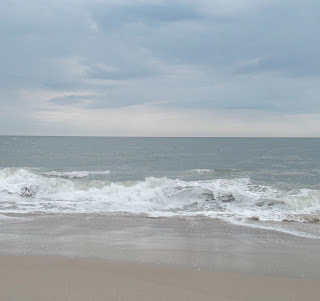 No matter how I may feel, or how distant God may seem to be from my life, I know that I can always find Him, and love Him.
No matter how I may feel, or how distant God may seem to be from my life, I know that I can always find Him, and love Him.He may seem hidden from my thoughts, my emotions, my psychological experience, my health, but even in this darkness He can be found through my love. Even the experience of the energy of desire may flag, but love always remains possible.
Where is this God who asks for my love?
He is inside the needs and tasks of this day, in the kids and their concerns, in the time Eileen and I have together, in the rhythm of my work and prayer.
When I write, He is here. When I do research, He is here. When my words are blocked or I've reached a dead end or I'm just tired, He is here.
When I go exploring and take photographs, He is here. When I learn new techniques, and use multimedia or the internet, He is here. When I put a lot of effort into a project and it ends up being something useless, He is here.
All day, in the house, He is here. When we eat our food and bump into one another and annoy one another, He is here. When I smile and say, "Thank you" to Eileen, He is here -- and also when I say, "Sorry" or "Excuse me," or something dumb, something I wish I hadn't said. When we pray the Rosary, even though we may all be falling asleep, He is here.
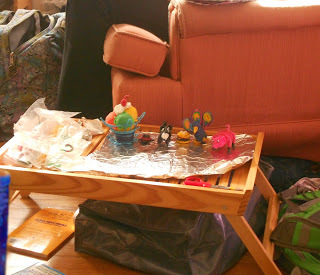 Creative mess. On the floor.When we watch movies or TV, He is here. When we converse about everything from faith and philosophy to weather to birds to superheroes to silly names to boiled eggs, He is here. When we clean up the messes in the house, He is here. When we trip and fall over them, again and again, He is here.
Creative mess. On the floor.When we watch movies or TV, He is here. When we converse about everything from faith and philosophy to weather to birds to superheroes to silly names to boiled eggs, He is here. When we clean up the messes in the house, He is here. When we trip and fall over them, again and again, He is here.When I have to just lay down in my bed, alone, in the middle of the day because my body hurts too much, He is here.
In all these moments, I want something, I am drawn by some hope that doesn't die even though I'm often frustrated by not being able to find what I think I need.
When I pray, "Come, Holy Spirit," I am asking Him to manifest Himself; to enrich my awareness of His presence. He calls out and gives Himself through the invitation to love and the longing for love contained in the most ordinary circumstances.
His invitations say, "Love all the way. Do not stop at your own satisfaction or give up because of your frustration. Seek the Source of what attracts you, and -- in affirming the goodness of whatever is given in the circumstances, and sustaining hope beyond all limits -- allow yourself to be embraced by the Source."
This sounds profound, but in practice it's really pretty overwhelming. Often our situation seems dull, repetitive, and fruitless, if not painful or desolate. But even in the best of circumstances, it's not easier to "love all the way" -- the weight our limitations pulls us toward something less, some position that appears for a while to correspond to what we want, but that can't help falling short and eventually taking on the bitter taste of discouragement.
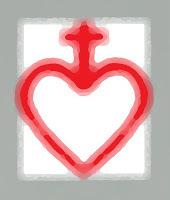 Our hope is Jesus, because He makes it possible for us to love in the way we were created to love, which is to love in union with Him, all the way to the Father.
Our hope is Jesus, because He makes it possible for us to love in the way we were created to love, which is to love in union with Him, all the way to the Father.He sends His Holy Spirit from the Father to transform the smallness of our love, to enlarge our hearts and our loving to His measure, which is beyond all measure.
We must call out to the Holy Spirit, and listen to the silence in which He whispers to us the secrets of Divine Love, and shapes them into the flesh of our daily life.
Published on June 17, 2015 20:26
June 15, 2015
When We Feel that God is Far Away

"More than in other dimensions of our existence
it is in prayer that we experience
our weakness and our poverty,
being creatures before the omnipotence of God....When we feel that God is far away,
that we do not have words
to communicate with Him,
this absence of words
and the desire
to enter into communication with God
is prayer,
which through the Holy Spirit
becomes a real contact with Him."--Benedict XVI, General Audience, May 16, 2012
Published on June 15, 2015 18:52




